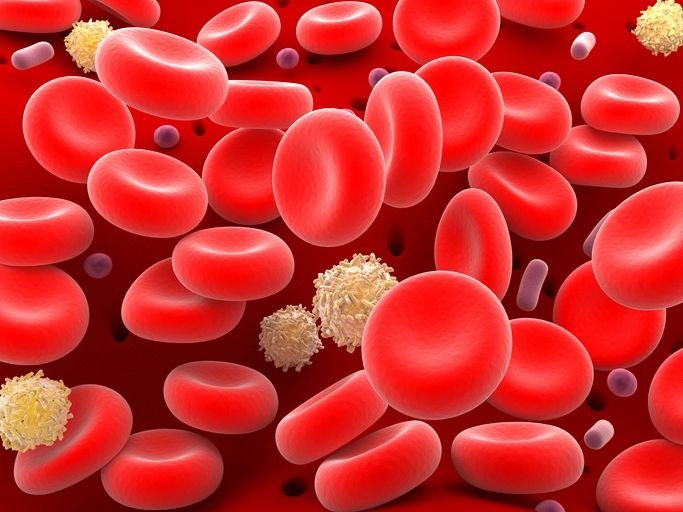How does breathing keep blood pH constant?
Caution : You must consult your doctor for your health. This page presents only a personal and alternative point of view which should not be considered as an attempt to prescribe medicine.
The pH is an essential element for our well-being.
It allows our body to function perfectly and eliminate all kinds of toxins present in the blood.
Nevertheless, it is important that the blood pH is constant in our body.

There are several ways to achieve this, such as breathing.
All about the acid-base balance
It is important to understand the importance of the acid-base balance in our organism to control the intervention of respiration on the maintenance of constant blood pH.
Know first of all that our body has the capacity to permanently receive contributions in acid and base.
These when combined, form a solution that is both acidic and basic.
Thus, it is the pH or potential hydrogen, which makes it possible to measure the acidity of this solution present in our body.
Also, when this solution is added to water, it decreases the H + by releasing OH-.
This means that the latter is basic or alkaline.
The more H + ions the solution contains, the more acidic it is considered.
When the pH is between 0 and 7, it means that the solution present in our body is acidic.
A pH estimated between 7.1 and 14 is equivalent to a basic solution in our body.
In either case, it is not favorable for our body to function properly.
The ideal would therefore be for the pH to be equal to or slightly greater than 7.
Thus, in our organism, the pH of the blood must be between 7.35 and 7.45.
However, some variations are normal and physiological.
So it will not be necessary to worry if at certain times the pH is significantly higher or lower than this standard.
The difference between blood pH and urine pH?
It should be understood that measuring your urine pH will not determine your blood pH?
You should know that your blood pH is kept neutral at all times through breathing.
When you inhale oxygen, it provides "bases" to alkalize your blood acidified by too much acid.
Inspiration is triggered when your blood becomes too acidic.
The exhalation simply expels this excess acid.
We understand here the importance of breathing on the Ph.
But above all, we understand the importance of not doing just any breathing exercise or the importance of better managing stress.
Acid-base balance through breathing
For example, when you voluntarily hyperventilation in an exercise, you are expelling too much CO2.
This makes your pH excess alkaline.
So, know that an alkaline ph will increase neuronal excitability.
In other words, you will be restless!
Conversely, a chronically blocked breathing which leads to hypoventilation and therefore a Excess CO2 will make your pH excessively acidic.
Too much acidity will cause central nervous system depression.
This is the reason why it is of utmost importance to keep the blood pH constant through natural breathing.
Acid-base balance through breathing
Know that the body has the capacity to constantly maintain this balance.
This is done naturally by varying the speed of pulmonary ventilation.
In other words, your body alone maintains constant blood pH, thanks to breathing.
When you are in acidosis, your body will tend to increase your breathing.
When you play sports, your ph becomes acidic, you breathe more oxygen (basic).
If you find yourself in alkalosis, it will decrease breathing to concentrate CO2.
So this means that all you have to do to keep your blood pH constant is to exert some control over your breathing.
I would say better, that you have to control yourself to "let go" on your breathing.
In other words, you must remain vigilant not to "block" or "modify" your breath.
This is done automatically by the body.
Stress and acid-base balance
When you are stressed, you should know that your body is going into a form of chronic hyperventilation.
Stress therefore causes a slight (even intense) alkalosis, your pH is too alkaline.
Indeed, hyperventilation, even imperceptible, will expel too much CO2.
The result is simple: you will exhaust your kidneys and your adrenal glands which will have to produce adrenaline and bicarbonate to replace the lost CO2.
This is manifested by adrenal fatigue, but also bags under the eyes (kidney fatigue).
Hyperventilation and a lack of CO2 also pushes you to consume very acidic foods, such as sugar, meat, fried foods, etc.
So in the case of stress, it will be necessary to use a technique that produces a slight hypoventilation, as is the case for intermittent breathing.
Above all, don't fall into the trap of breathing more while hyperventilating, because your stress is already causing you to hyperventilate, even subtly.
❤ The ultimate guide to breathing
Intermittent Breathing : Discover the method to quickly relieve your anxiety and chronic fatigue (positive effects from the first use).Read also :
Previous article : How to inhale and exhale correctly? 3 techniques
Next article : How does breathing synchronize brain waves?

